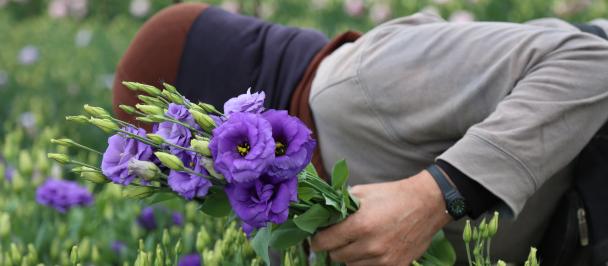Remarks at EU-hosted high-level meeting on the Syria crisis at UNGA73
EU-hosted high-level meeting on the Syria crisis
September 26, 2018
As prepared for delivery.
Distinguished High Representative Mogherini,
Commissioner Stylianides,
Excellencies,
UN Colleagues USGs DeMistura, Grandi and Lowcock
I thank the EU and, in particular, High Rep Mogherini for convening this timely meeting and for her steadfast focus on the importance of supporting Syrians inside the country and in the region over the past few years. Nearly eight years after the start of the crisis, Syria remains a severe political, humanitarian, refugee and developmental crisis, well beyond its borders.
We commend and support the efforts of Special Envoy De Mistura in promoting peace talks under UN Security Council Resolution 2254. As colleagues from UNHCR and OCHA have highlighted, the current plight of Syrians requires a sustained effort, both on the humanitarian and resilience fronts, inside Syria as well as in the neighboring countries.
UNDP remains committed to complement the important work of our humanitarian colleagues by the nature of our mandate and to help strengthen local level community resilience within the framework of the Humanitarian Response Plan.
Throughout our work, UNDP adheres to, and fully supports the principled approach led by the UN Secretary-General on Syria and focuses on localized, conflict-sensitive, people-centered activities in two key areas: the rehabilitation of local services; and support to emergency livelihoods. We do this in close partnership with our UN sister agencies.
Despite the many challenges, and thanks to the support of our generous donors, we have so far this year reached 2,143,944 beneficiaries (47,412 directly, and 2,096,532 indirectly) in nine governorates. Overall, our activities aim at reinforcing the sustainability of life-saving humanitarian interventions, by building resilience of individuals and communities and enhancing their ability to take part in recovery once this process starts.
It is important to remember that Syria is made up of 17 million Syrians that continue to struggle to find peace and livelihoods and where according to the UN, 69 percent of the population have fallen into extreme poverty . They deserve our undivided attention and support. Supporting these communities is also key to planning for the expected return of refugees, and the more immediate challenge of IDP returns.
I echo my colleagues’ expression of tremendous gratitude to the countries of the region that continue to host Syrian refugees – in particular Jordan, Lebanon and Turkey, as well as Iraq and Egypt.
The Regional Refugee & Resilience Plan, (the 3RP), co-led by UNDP and UNHCR, continues to be a cornerstone of international support to assist these countries. In 2017, 3RP partners in the Livelihoods and Social Cohesion sector – a pillar of resilience-building – alone assisted over 110,000 refugees and host communities’ members with job/language trainings and job referral services, as well as over 30,000 with short and long term employment opportunities.
In a visit to Jordan this month, the Top Donors Group to the Syria crisis response (HRP and 3RP), met with local women - Syrian and Jordanian – and saw the benefits of these initiatives. In a region with high numbers of refugees living side-by-side with host community members, this support is critical for social cohesion and stability. In the case of the refugees, the skills developed will also contribute to successful re-integration upon return to Syria.
This year the total 3RP appeal amounted to US$5.6 billion, with 41 percent of the inter-agency ask dedicated to resilience. Regrettably, only 42% of the total 3RP’s appeal has been funded, with the resilience component chronically underfunded. I appeal to all partners to lend their support.
Meanwhile, it is also critical that efforts aimed at responding to the refugee crisis are closely tied to actions aimed at addressing wider developmental challenges. Lebanon and the international community have pathed the way for this approach with the CEDRE conference. A similar event is being planned in Jordan in the coming months. UNDP stands ready to support these efforts.
In conclusion, despite the many and significant challenges inherent to the Syria crisis, I am pleased that our collaboration has led to the practical implementation of the humanitarian-development nexus that we have all collectively sought to establish, and which is so important for achieving sustainable results on the ground.
Over and beyond, however, the Syria crisis continues to be about the human lives most affected by the crisis, whether inside Syria or in the region.
Our steadfast support remains critical to alleviate their suffering and to give them hope for the future.

 Locations
Locations

